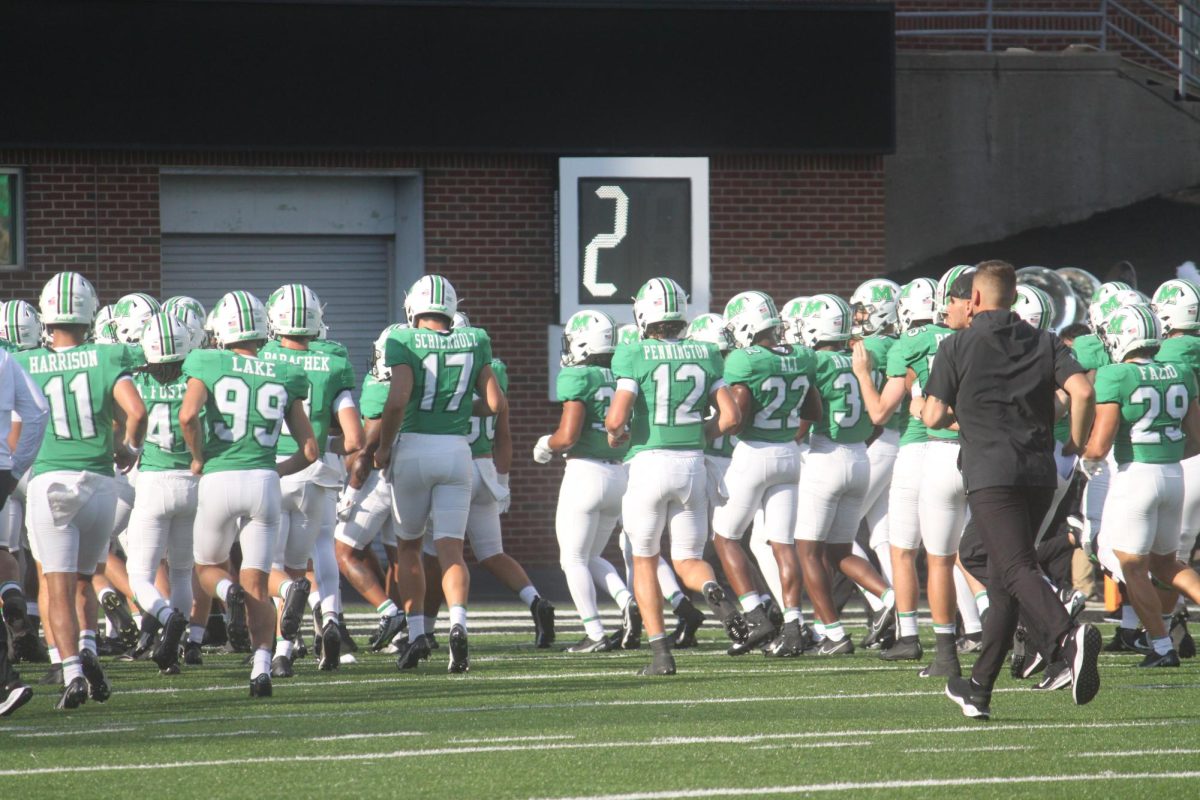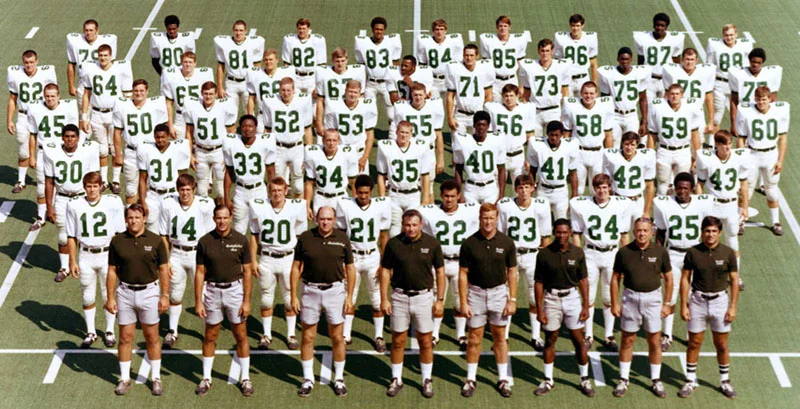A Marshall University Student is in Prison for Rape, His Victims Reveal how the School Failed them
Students protest following the release of USA Today’s article.
November 29, 2022
Alicia Gonzales remembers every detail, each decision, the cleaving of her life.
Her perpetrator, fellow Marshall University student Joseph Chase Hardin, was more than 6 feet tall and 250 pounds, and he was aggressive and undeterred – by her “nos,” by her nails across his flesh, by every effort she made to get away.
When he left, Gonzales did what women are taught to do, the things that can feel impossible to do. She preserved the moment and preserved her body. She sent a group text to her two closest friends, told them something bad had happened and they needed to come right away.
Her friends arrived like detectives, bagging evidence, taking pictures. They told Gonzales it was time to go to the hospital. They helped her back into her original clothes and packed extra ones. They grabbed a male friend as an escort.
The nurses administered a rape kit, swabbing every inch of her, which felt like a re-violation. The police came, but Gonzales said she couldn’t speak. The next morning, on Feb. 2, 2016, Gonzales walked with her friends to the Marshall University Police Department and filed an official report. The police informed Lisa Martin, the school’s director of student conduct.
What came next, according to Gonzales and the lawyers who would represent her in her civil suit against the university, was a litany of decisions that demonstrated Marshall’s carelessness toward Gonzales – her rape, her trauma, her education. It is a case study into how, five decades after the passage of the landmark Title IX law banning sex discrimination in education, schools continue to fail women.
In the U.S., 1 in 5 college women report being sexually assaulted during their time at school, and the trauma of these violations ripples across their education. Some have trouble attending classes and see their grades drop, others take long leaves of absence to heal or avoid their perpetrators. Some transfer or quit school altogether.
Title IX was supposed to address that. In addition to mandating equity in academics and athletics, the federal government also requires schools crack down on sexual harassment and sexual violence.
Guidance from the U.S. Department of Education in 2011 crystallized that mandate: Schools must designate Title IX coordinators. They must immediately investigate allegations of rape, stalking and dating violence. They must offer accommodations to victims and levy sanctions on perpetrators. They must ensure that students feel safe on campus and can obtain an education free from gender-based harassment or violence.
With Hardin, Marshall followed the letter of the law but missed the spirit. By the time the school finally expelled Hardin for sexual misconduct, Gonzales had transferred to another university, and two additional students accused him of rape.
Accountability came too late.
















